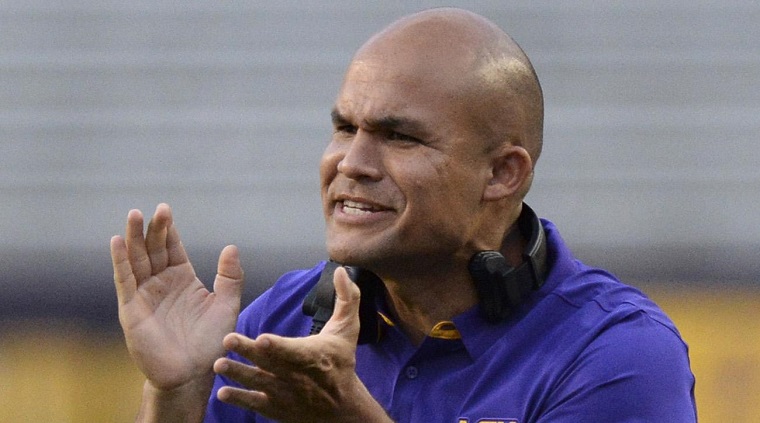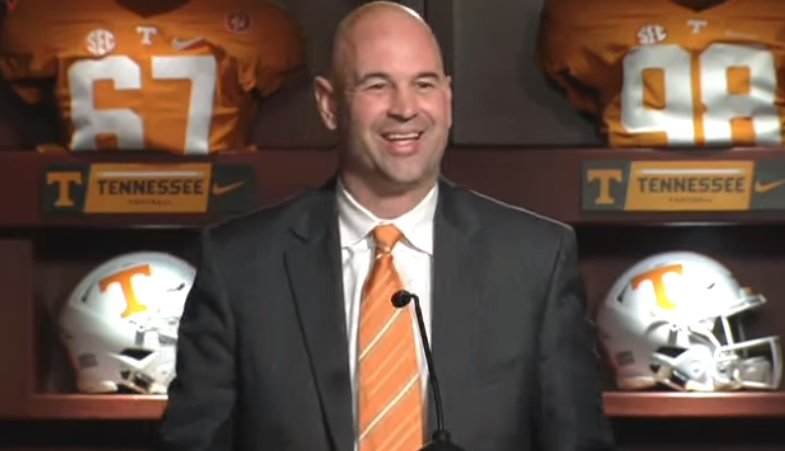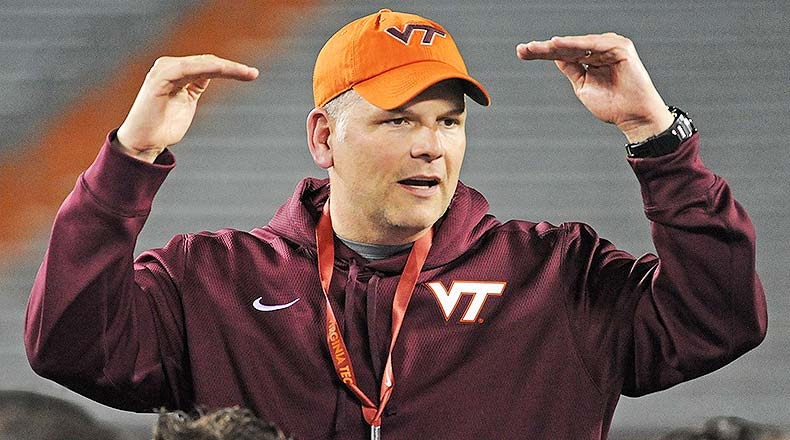On Wednesday night, LSU put the finishing touches on a brand new contract for defensive coordinator Dave Aranda. LSU spared no expense to keep who they believe to be college football’s top defensive coordinator in Baton Rouge after Texas A&M came looking to lure him away to College Station to join Jimbo Fisher on the Aggies staff.
As is so often the case when power conference programs start getting in a bidding war for a coach — or in this case, an assistant coach — he benefits with a nice new payday in a no-lose situation. After lucrative offers from Texas A&M, LSU locked in Aranda for the next four years on a contract that will guarantee the defensive coordinator $10 million.
Ten. Million. Guaranteed. For a coordinator.
Such is the state of college athletics, at least within the power conferences where the divide between the haves and have-nots continues to widen. When power conference programs have access to increasing revenue from astronomical media rights packages, a good share from the postseason revenue splits and donors with deep pockets, programs like LSU can afford to splurge for the best possible coaching staff it can. The salaries for head coaches has gone up over the years, but the amount being paid to assistant coaches continues to increase by similar percentages.
Aranda was already college football’s highest-paid assistant coach in 2017 with a total payout of $1.8 million. LSU was also paying offensive coordinator Matt Canada $1.5 million, giving the Tigers two of the four highest-paid assistant coaches in the country. For the sake of comparison, head coach Ed Orgeron (paid $3.5 million) was the 29th highest-paid head coach in the country this past season, according to the coaching salary database compiled by USA Today.
LSU’s approach was clear with paying their coaches. Orgeron was seen as a good coach for the Tigers, but the school needed to shell out some big money to give him the best possible coordinators possible in order to compete for an SEC championship. LSU’s mindset is one previously used by Clemson as Dabo Swinney was given two of the top coordinators getting top dollar with Brent Venables (now the second-highest-paid coordinator) and Chad Morris, who was highly paid as Clemson’s offensive coordinator before leaving to take a head coaching job at SMU, and now at Arkansas.
This has been years in the making, but power conference programs are now regularly able to pay coordinators and other assistant coaches more than some head coaches will be paid by non-power conference programs. Aranda’s new contract will pay him more than over 80 FBS head coaches. His deal as defensive coordinator at LSU would make him the 47th highest-paid FBS head coach, based off the same coaching salary database — although it should be noted Aranda could actually be higher depending on the salaries of some new head coaches.
Going off of this past season’s database, 15 coordinators were paid at least $1 million for their services by a school from the ACC, Big Ten, Big 12, Pac-12 or SEC. One of those coaches, Alabama defensive coordinator Jeremy Pruitt, will be a head coach in 2018 (Tennessee). It is also worth noting that USA Today‘s database may not be complete, with a number of schools not sharing contact information. That means a top coordinator like Joe Moorhead at Penn State is not included in the records, although it is likely the new Mississippi State head coach was pulling at least $1 million at Penn State given the resources available.
When programs from those big revenue conferences can dole out the money the way they have for assistant coaches, it can quickly trickle down to deplete the coaching pool for Group of Five teams. Sure, there are plenty of good coaches to be found in the depths of the Group of Five, but arguments can be made that being paid to be an offensive or defensive coordinator at a power conference program can be more enticing than taking on a head coaching gig at a Group of Five program.
The first time this became evident was in 2015 when Central Michigan head coach Dan Enos left the Chippewas to become the offensive coordinator at Arkansas. In terms of job title, the voluntary move from head coach to offensive coordinator was eyebrow-raising, but Arkansas made it worth the move for Enos. Enos was paid $360,000 to be the head coach at Central Michigan at the time he left for Arkansas. The Razorbacks were able to pay Enos $550,000 per season with a buyout that was nearly equal to his annual pay at Central Michigan. Enos set the precedent for showing a coordinator at a power conference program was more beneficial than being the head coach at a non-power conference program.
Of course, not all non-power conference programs are the same. There are still lucrative opportunities out there and good coaches will find good landing spots in the Group of Five. But those are likely short-term jobs for many coaches who aspire to be in a power conference program.
The AAC has become a stepping stone conference to bigger opportunities over the years. Aside from Navy head coach Ken Niumatalolo, the AAC has seen multiple coaches leave for power conference jobs frequently: Justin Fuente to Virginia Tech, Tom Herman to Texas, Matt Rhule to Baylor, Chad Morris to Arkansas, and Scott Frost to Nebraska. FAU was able to make a surprising hire by getting Lane Kiffin out of Alabama, but how long will Kiffin remain in Boca Raton? Niumatalolo is the nation’s 57th highest-paid coach, making him the highest-paid Group of Five coach in the nation following the departures of Morris and Frost from the AAC. And he is now making less than Aranda will be averaging at LSU.
This divide will only continue to grow as media rights packages continue to inflate in favor of the power conferences and the non-power conferences struggle to secure adequate funding. This problem has been in the works for a number of years, stemming from the conference realignment shifts of the past decade and as time goes by the challenges will only become steeper for those without the power in college football and collegiate athletics in general.









